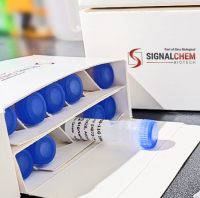Senescence Regulation by the p53 Protein Family
互联网
649
p53, a guardian of the genome, exerts its tumor suppression activity by regulating a large number of downstream targets involved in cell cycle arrest, DNA repair, apoptosis, and cellular senescence. Although p53-mediated apoptosis is able to kill cancer cells, a role for cellular senescence in p53-dependent tumor suppression is becoming clear. Mouse studies showed that activation of p53-induced premature senescence promotes tumor regression in vivo. However, p53-mediated cellular senescence also leads to aging-related phenotypes, such as tissue atrophy, stem cell depletion, and impaired wound healing. In addition, several p53 isoforms and two p53 homologs, p63 and p73, have been shown to play a role in cellular senescence and/or aging. Importantly, p53, p63, and p73 are necessary for the maintenance of adult stem cells. Therefore, understanding the dual role the p53 protein family in cancer and aging is critical to solve cancer and longevity in the future. In this chapter, we provide an overview on how p53, p63, p73, and their isoforms regulate cellular senescence and aging.








